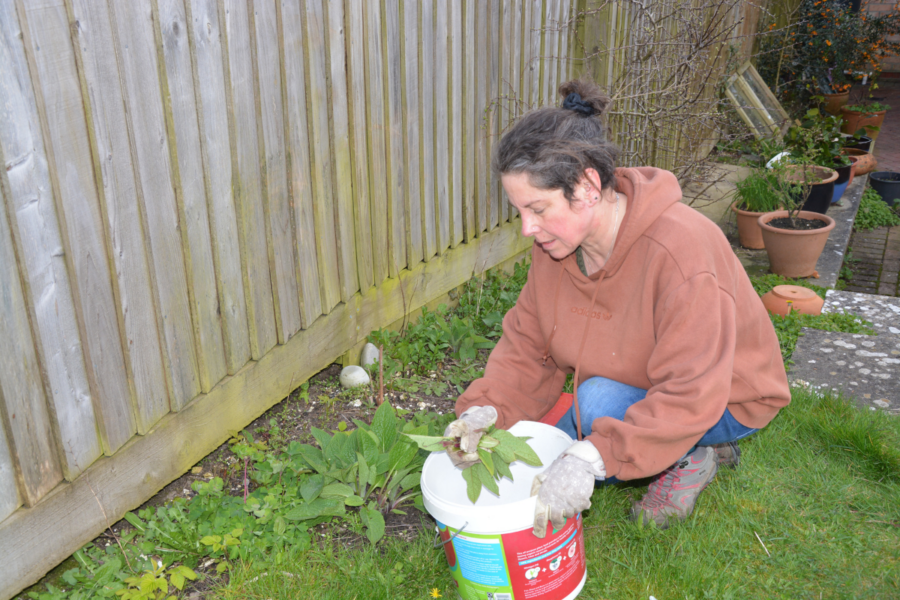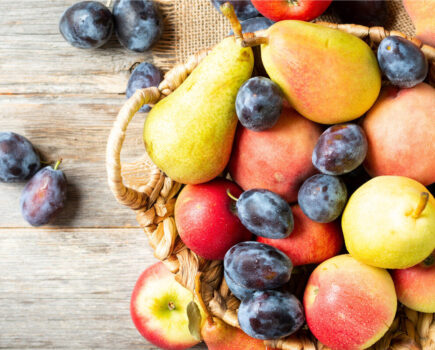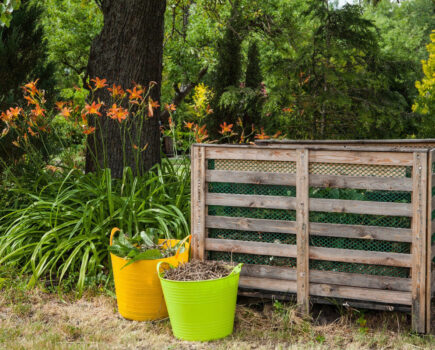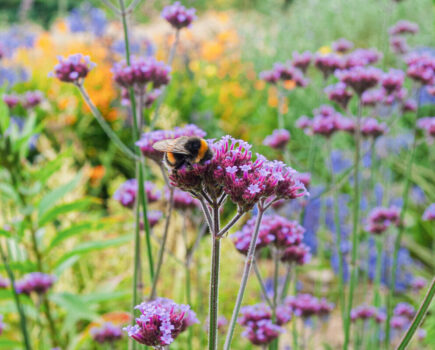Use fresh leaves that are packed with nutrients
One of the biggest financial outlays most gardeners make is fertilisers and supplements – but do we really need to? There is a school of thought that says that tough love produces more robust plants, and that those that are mollycoddled tend to be weaker and less resilient.
For example, too much nitrogen-rich fertiliser produces lots of lush sappy growth that is a magnet for slugs, snails and sap-sucking critters.
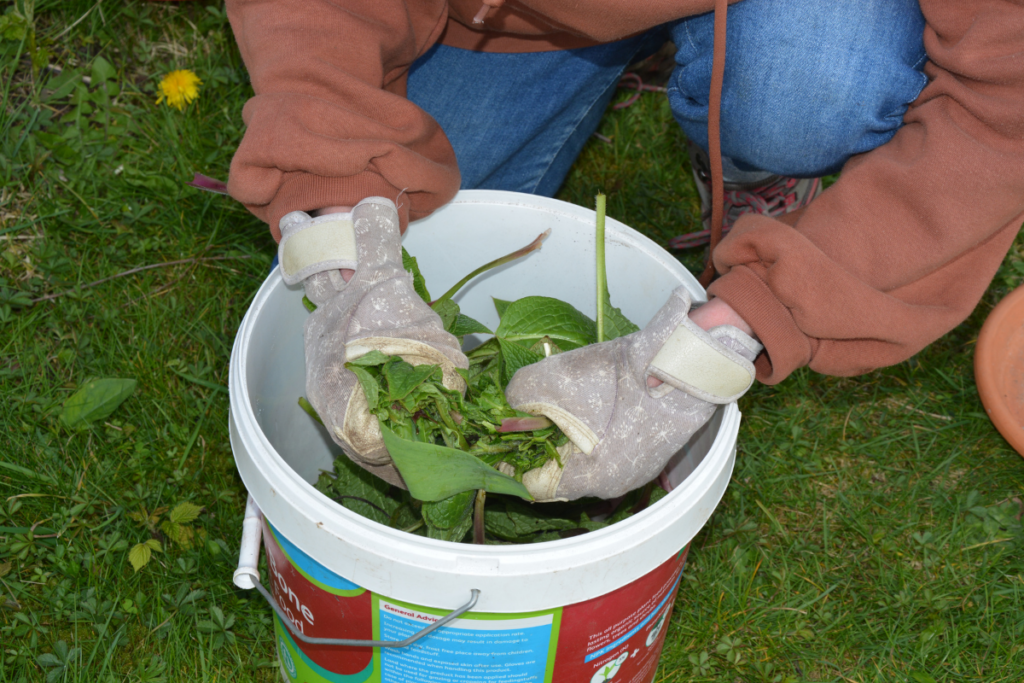
We use probably the bare minimum of fertiliser – just high-potassium feeds for crops when they are starting to flower and fruit, and also to keep container plants productive. I also add some bone meal or Growmore when planting perennials or relocating shrubs, but otherwise we generally let plants get on with growing in our homemade compost-enriched soil.
The exception is comfrey and nettle tea, two pungent but beneficial brews that make each spring from fresh leaves. These two plants are invaluable for the garden because not only do they attract beneficial insects, their deep roots spread far and wide and suck up a rich bounty of nutrients that are stored in the leaves and released when crushed in water and used as a fertiliser or dug into the soil.The residual mush left when the fertiliser has been drained can be added to the compost heap or used as a mulch around the garden.
Using comfrey
So many free benefits
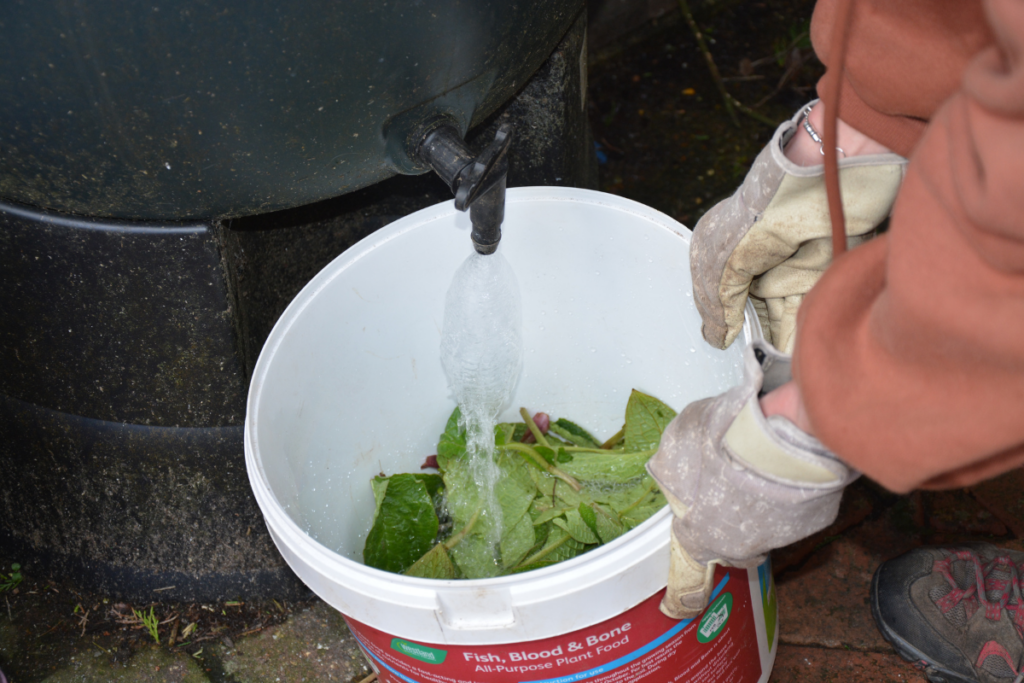
1. Break up comfrey leaves and steep in water, weighed down by a brick. Leave it for several weeks then drain off the liquid and add more leaves. The liquid is diluted one part to 20 of water if it is thick and dark, 1 to 10 parts water if paler brown,
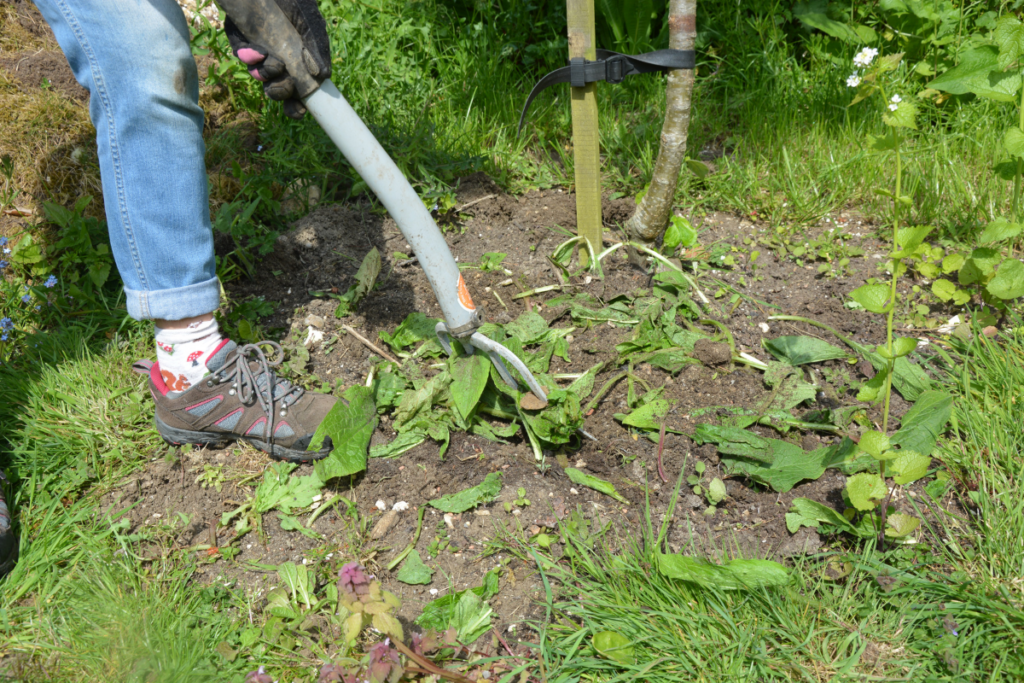
2. Comfrey leaves can also be dug straight into the soil around trees and shrubs to release their goodness. I also add a layer to containers when planting my patio pots and use the leaves to line the planting holes for bean wigwams.
Find more tips, advice and articles like this at the Amateur Gardening website. Subscribe to Amateur Gardening magazine now.

